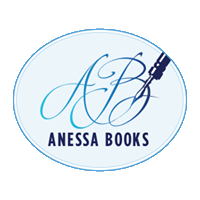 A number of writers suffer from this frustrating malady—writer’s block. They want to write. They’ve got stories in their head. And yet, when they sit down in front of their computer, they blank out. They’ve got nothing. No words come.
A number of writers suffer from this frustrating malady—writer’s block. They want to write. They’ve got stories in their head. And yet, when they sit down in front of their computer, they blank out. They’ve got nothing. No words come.
How annoying could that possibly be?
Well, extremely, especially for those who are on deadline or have a contract they need to fulfill, or even just writers who have a story they want to tell. The natural question, of course, is how to get past this and get those words flowing again.
There are a number of ways, and frequently the way to get past it depends on what caused the block to happen in the first place.
Strategy #1: The first thing I tell my coaching clients is to go for a walk.
Truly, go for a walk. Get out into the sunshine (or rain). The objective is not only to get some exercise, which is always good for thinking (get that blood moving more quickly), but to get away from your computer, away from what you’re trying to do, and out of your repetitive thoughts—get out of your own head.
When you go for this walk, don’t think. Don’t think about anything but your surroundings. Are you in the woods? Enjoy the sounds of nature. Are you in the city, watch the people around you. Enjoying a stroll in the suburbs? Listen to the sounds around you. Are there children playing? Someone mowing their lawn? Birds fighting?
The idea is to get away from your writing and clear your head.
Some people prefer to clean or organize their home. The idea is the same. It’s to think of something else entirely.
When you don’t consciously think of your story or your writing, it allows your subconscious to take over and get some of the work done for you. It allows your creativity to just flow without you trying to put a leash on it.
Because it may have been that leash that stopped it dead.
Clearing your mind, getting out into the world, thinking about something entirely different may just be the trick to get your words flowing again the next time you sit down to write.
Strategy #2: Once you’ve cleared your head, if the story still refuses to emerge from your fingertips, it’s possible your writing pump needs a little priming. In other words, sometimes you need to write something else in order to write what you want.
Do you journal? Do you plot? Whether you’re a pantser or a plotter, do you ever just sit down and think about your story and write about it—that’s not writing the story, that’s different. This is writing about the story or about the characters.
Sometimes simply writing your thoughts about your story or characters will help you put you into the story. It will perhaps clarify points that you hadn’t realized you were stuck on. It may let you get to know your characters better so that you will know how they would be have in a certain situation—perhaps the one they’re facing in your story.
So, solution number two is to write. Write anything but your story. You can write about the weather, about the movie you saw last night or about your story and its characters. The point is to prime the pump, get words flowing from your brain onto your paper or computer screen.
Once you’ve gotten the words flowing again, then you can move onto your story. And to be honest… sometimes when I’ve sat to down write about my story, before I’ve written very much, I suddenly find that I am writing the story. I’ve switched from narrative writing to dialogue. I’m writing descriptions of places and moving my characters through them. I’m writing the story when I had intended to write about it.
It’s not a problem, it’s the goal.
Stragegy #3: Plot.
Yes, you may say that you’re a pantser, that you can’t stand to know what’s going to happen in a story before you write it, but if you’re not actually writing it because you can’t, the problem may be that you don’t know what’s going to happen and that’s why you can’t write it.
A brief time spent plotting out what’s going to happen will help a great deal. It will get you moving forward on your story again.
If you haven’t already, sit down with either an outline or a W graph and decide on what the main turning points of your story: the instigating event, the first major turning point, the climax or point of no return, the crisis or black moment and the resolution. Without a map, it’s not surprising that a writer could get lost and end up not being able to move forward with a project.
People who are pantsers may balk at even this very light plotting, but if you’re not moving anywhere on your WIP, this could be problem and there’s a very simple solution for it.
So, three possible solutions to writer’s block – getting away from your work preferably with a walk outside, writing everything and anything either to do with your story or not at all, and plotting.
If none of these work for you, next week we’ll talk about a reason why you might be getting blocked.
